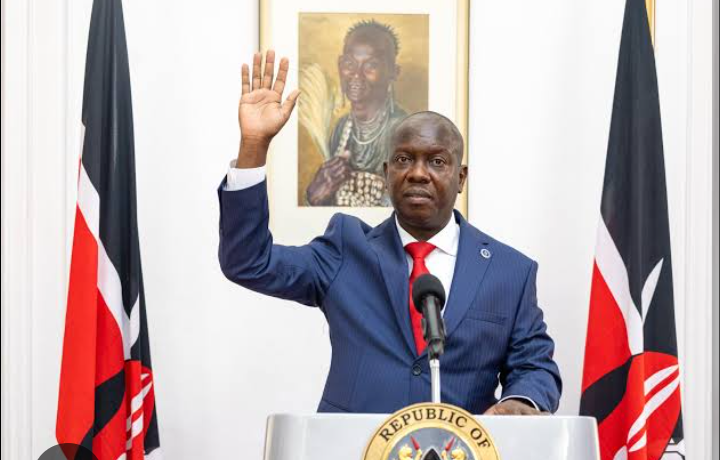The Office of the Director of Public Prosecutions (ODPP) in Kenya is once again embroiled in controversy after withdrawing a high-profile graft case involving the Tanathi Water Works Development Agency.
The case, which centered around the irregular procurement and mismanagement of Ksh 290 million intended for the Kananie Leather Industrial Park Water Supply Project, has ignited public outrage.
At the front of the controversy is Fredrick Tito Mwamati, the CEO of Tanathi, alongside other senior officials, who were implicated in what the Ethics and Anti-Corruption Commission (EACC) deemed as blatant misuse of public resources.
The EACC has opposed the ODPP’s decision to withdraw the case, claiming that sufficient evidence exists to prosecute the individuals involved.
According to the EACC, the ODPP’s move was not made in the public interest and raises serious concerns about the commitment to fighting corruption in Kenya.
The anti-corruption body argues that allowing the suspects to walk free after such massive financial mismanagement sends the wrong message to the public about the government’s anti-graft efforts.
This case is not an isolated incident.
Over the past few years, the ODPP has come under increasing criticism for withdrawing high-profile corruption cases, often involving millions, if not billions, of shillings.
For instance, earlier this year, the ODPP withdrew charges against senior officials at the Geothermal Development Company (GDC), citing insufficient evidence.
In that case, like in the Tanathi one, the EACC strongly opposed the withdrawal, arguing that their investigations had uncovered fraudulent procurement practices that resulted to substancial financial losses.
Public confidence in the ODPP’s ability to prosecute graft cases has been turnished.
The frequent withdrawal of cases, often without a clear or convincing explanation, has led to accusations that the office is either incapable of preparing strong cases or is bowing to political pressure.
Critics argue that these withdrawals undermine the EACC’s efforts to bring corrupt officials to justice, creating an atmosphere of impunity for those involved in graft.
In response, the ODPP has maintained that its decisions are guided by evidence, and it has the constitutional right to withdraw cases where it believes the evidence is insufficient for a successful prosecution.
However, this defense has done little to quell the growing criticism from both the public and anti-corruption watchdogs.
The EACC continues to call for more transparency in the decision-making process, particularly when it comes to dropping cases involving such substantial sums of public money.
The withdrawal of the Tanathi case has further fueled the ongoing debate about Kenya’s fight against corruption.
With billions of shillings at stake and the government under increasing pressure to show tangible results in its anti-corruption efforts, the public demands answers.
Many feel that the ODPP’s actions have weakened the integrity of the justice system and allowed corrupt officials to evade accountability.
Questions remain about its true commitment to prosecuting high-profile graft cases and whether the office is truly independent or subject to political influence.
The EACC has vowed to continue its investigations, expressing hope that justice will eventually prevail in the fight against corruption.





















Add Comment